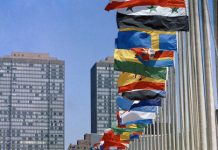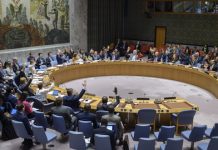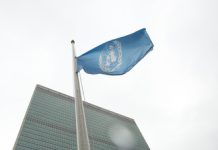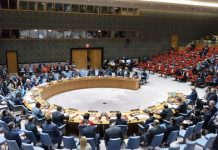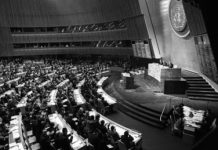HIV services in sub-Saharan Africa choked by growing debt crisis: UNAIDS
The growing public debt crisis in sub-Saharan African countries is preventing the region’s governments from adequately financing health and critical HIV services which are essential to ending AIDS, UNAIDS said on Thursday.
In a new report, the UN agency dedicated to ending the disease said that the region’s success in reducing new HIV infections by 56 per cent since 2010 will not be sustained if debt repayments to international lenders continue to limit the capacity of authorities to tackle the health threat.
The warning from UNAIDS is significant because sub-Saharan Africa has the largest number of people living with HIV – more than 25.9 million of the nearly 40 million who live with the illness globally.
Paying back sovereign debt now exceeds half of government revenue in Angola, Kenya, Malawi, Rwanda, Uganda, and Zambia.
UNAIDS said that even after debt relief measures, Zambia will still be handing over two-thirds of its budget for debt servicing between 2024 and 2026.
Independent rights panel expressed deep concern at Palestinian children held by Israel
Top independent human rights experts meeting in Geneva on Thursday expressed concern about the “high number” of children in Gaza killed as a result of the war and the damaging impact on Palestinian youngsters being detained by Israel.
Following a scheduled review of Israel, the Committee on the Rights of the Child condemned the fact that children in Gaza had been “killed, maimed, injured”, or were “missing, displaced, orphaned and subjected to famine, malnutrition and disease, as a result of [Israel’s] indiscriminate and disproportionate attacks”.
According to the Palestinian authorities, more than 11,300 children have been killed since Israeli bombardment of Gaza began on 7 October in response to Hamas-led terror attacks.
The child rights panel – whose members are not UN staff – also said that they were deeply worried about the “continued abduction, arbitrary arrest and prolonged detention of large numbers of Palestinian children by Israeli forces, mostly without charge, trial or legal representation”.
Here’s Chair of the group, Ann Skelton, speaking to journalists:
“Whilst in detention, children don’t have access to lawyers, but what we were told that is that when lawyers are reaching them, the children are in a very poor state. They are these adolescents. Of course, are terrified and they’re suffering from scabies, which is a disease that you get from living in unhygienic conditions, which has causes the skin to itch. And they, you know, are also not able to see their families during this period of time.”
The panel of rights experts urged Israel to immediately stop the killing and injuring of Palestinian children in Gaza and to ensure safe and unrestricted humanitarian access to and within the Gaza Strip.
It also urged the Israeli authorities to allow construction materials necessary for Palestinian families to rebuild their homes along with key public infrastructure.
Russian attacks on Ukraine power stations set to push 500,000 people out of country
Repeated Russian attacks on energy infrastructure and power cuts in Ukraine are expected to force 500,000 people from their homes once winter fully sets in, UN human rights monitors said on Thursday.
The alert from the UN Human Rights Monitoring Mission in Ukraine follows significant destruction to power plants and the worsening energy crisis that has affected access to electricity, clean water and heating, while also pushing up prices for consumers.
The strikes on the national grid included one coordinated attack on 26 August which the Mission described in a new report as one of Russia’s largest since the onset of the full-scale invasion.
It involved “more than 100 missiles and 100 drones across numerous regions in Ukraine, primarily targeting energy and other infrastructure”.
Between 22 March and 31 August 2024, the UN report said that there have been “nine waves of long-range and large-scale coordinated attacks” on Ukraine’s electric power system.
Russian attacks since March have hit facilities in 20 of the 24 regions under Ukrainian control, including the capital Kyiv, according to the UN Mission.
“Many energy facilities were struck repeatedly, some until the point of total destruction,” it said, noting that it will “take years to fully repair and restore”.
Daniel Johnson, UN News
Music composed and produced by Joachim Harris. All rights reserved
Source of original article: United Nations (news.un.org). Photo credit: UN. The content of this article does not necessarily reflect the views or opinion of Global Diaspora News (www.globaldiasporanews.com).
To submit your press release: (https://www.globaldiasporanews.com/pr).
To advertise on Global Diaspora News: (www.globaldiasporanews.com/ads).
Sign up to Global Diaspora News newsletter (https://www.globaldiasporanews.com/newsletter/) to start receiving updates and opportunities directly in your email inbox for free.



